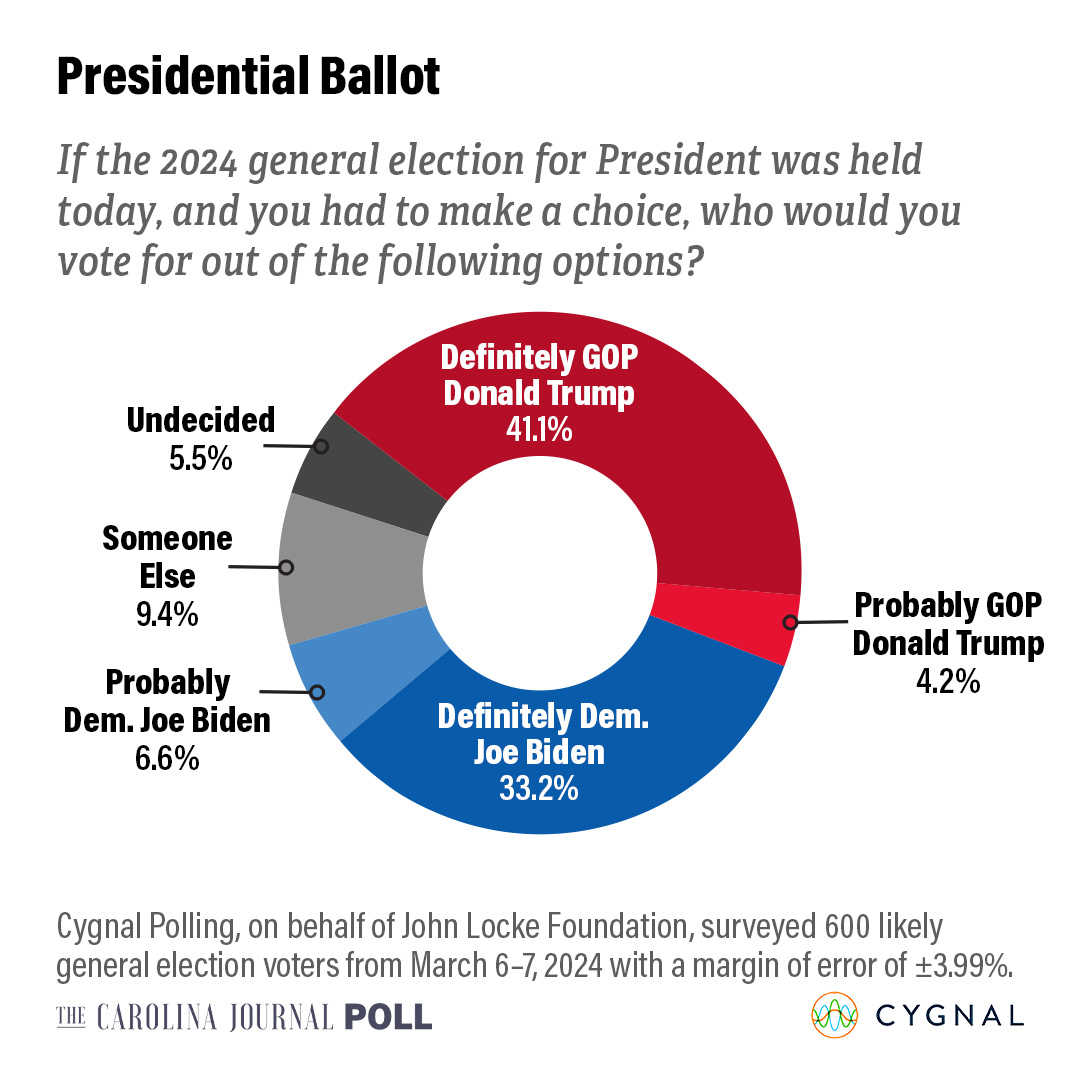In a substantial milestone, the Robert F. Kennedy, Jr. campaign for president has acquired enough signatures for the candidate’s name to appear on the ballot in North Carolina this fall.
The newly formed We The People political party gathered more than 23,000 signatures, far above the requirement to gain ballot access, with over a month to spare and a 60% buffer to protect against invalid signatures. The NC State Board of Elections has yet to verify the signatures.
“North Carolina is the fifth state in which RFK Jr. has collected the necessary signatures to achieve ballot access,” the campaign noted in a press release. Kennedy has met the necessary requirements to be on the ballot in Hawaii, Nevada, New Hampshire, and Utah.
Kennedy would have needed to obtain the standard 83,000 signatures as an independent candidate in the state, but that high bar was avoided by running as a third-party candidate instead. The We The People party submitted a petition request form with the State Board of Elections to become a recognized political party earlier this year, aiding Kennedy’s presidential bid.
SEE ALSO: RFK Jr. and allies challenge two-party system in North Carolina elections
“We have the field teams, volunteers, legal teams, paid circulators, supporters, and strategists ready to get the job done,” said Stefanie Spear, Kennedy’s campaign press secretary.
North Carolina is a prominent battleground state in the presidential election. Presumed Republican nominee Donald Trump held a rally in Greensboro last month; the Biden campaign has made numerous stops in the Tar Heel State so far this year; and Vice President Kamala Harris is expected to visit North Carolina again later this week.
All eyes are on North Carolina, meaning Kennedy’s influence could be detrimental – or advantageous – to Democrats or Republicans. While Kennedy’s bid for North Carolina’s 16 electoral votes is a heavy lift, the political scion pulls weighty support from both Republicans and Democrats who are displeased with both Trump and Biden. Both candidates hold strong dissatisfaction among factions of voters within their respective parties, and Gallup polling shows both carry lower favorability ratings than in 2020.
This raises a critical question facing the two main political parties: Can they sway voters from the opposing camp to support Kennedy, instead of their own party’s candidate? Kennedy will likely be used as a political tool in North Carolina to leverage votes against the either of the other two main candidates.
“Both Republicans and Democrats have taken to influencing the other’s primary elections in recent years. Whether by promoting a perceived weaker general election candidate in the other party’s primary election or advocating for the candidate they believe is more willing to cross the aisle,” explained Jim Stirling, a research fellow at the John Locke Foundation’s Civitas Center for Public Integrity. “Both parties will be incentivized to use RFK’s candidacy as a tool to pull away voters from their opponent’s base.”
Republicans who are skeptical of vaccines are intrigued by Kennedy’s stance on health and Big Pharma. However, Kennedy announced left-wing political activist Nicole Shanahan as his running mate, which could dissuade hesitant conservatives. Tulsi Gabbard, a former Democrat popular among some conservatives, reportedly rejected an offer to be Kennedy’s running mate.
On the other hand, Democrats who are displeased with Biden’s cognitive abilities and handling of foreign affairs could opt for Kennedy, who maintains left-leaning policies. Stirling notes that political activist organizations may promote Kennedy to the opposite side in order to take votes away from their opposition. The Democratic National Committee has already formed a communications team to counter the messaging of Kennedy and other third-party candidates.
Former President Donald Trump won North Carolina in 2020 by a margin of just 1.34%. In 2016, Trump won with a 3.7% margin. If enough unimpressed North Carolinians side with Kennedy in November, that margin could shrink even further in 2024.
According to The Hill, Trump’s advantage over Biden is slightly greater when Kennedy’s name is included. Recent polling from the Carolina Journal shows Donald Trump holds a 5.4-point lead over incumbent Joe Biden. A plurality of likely voters (45.2%) said they are planning to vote for Trump, while 39.8% said they plan to vote for Biden. A significant minority (9.4%) said they plan to vote for “someone else.” If it holds true, this would indicate a marked increase in third-party votes cast in the general election. In 2020, less than 1.5% of North Carolina votes were cast for a candidate other than Biden or Trump.

As we approach the busy final stretch of campaigning through the summer and early fall, updated polling data should provide clarity on Kennedy’s momentum and potential influence on general election results.